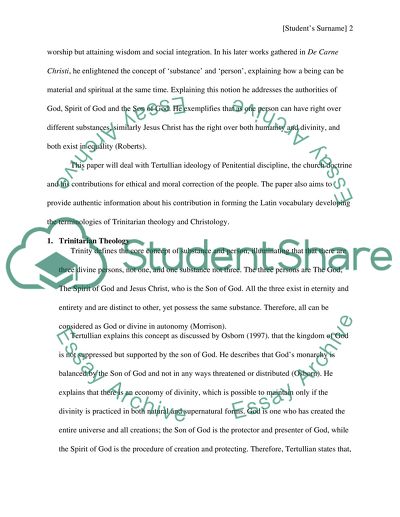Cite this document
(“The importance of the theologian Tertullian Essay”, n.d.)
The importance of the theologian Tertullian Essay. Retrieved from https://studentshare.org/religion-and-theology/1403605-critically-assess-the-importance-of-the-theologian
The importance of the theologian Tertullian Essay. Retrieved from https://studentshare.org/religion-and-theology/1403605-critically-assess-the-importance-of-the-theologian
(The Importance of the Theologian Tertullian Essay)
The Importance of the Theologian Tertullian Essay. https://studentshare.org/religion-and-theology/1403605-critically-assess-the-importance-of-the-theologian.
The Importance of the Theologian Tertullian Essay. https://studentshare.org/religion-and-theology/1403605-critically-assess-the-importance-of-the-theologian.
“The Importance of the Theologian Tertullian Essay”, n.d. https://studentshare.org/religion-and-theology/1403605-critically-assess-the-importance-of-the-theologian.


